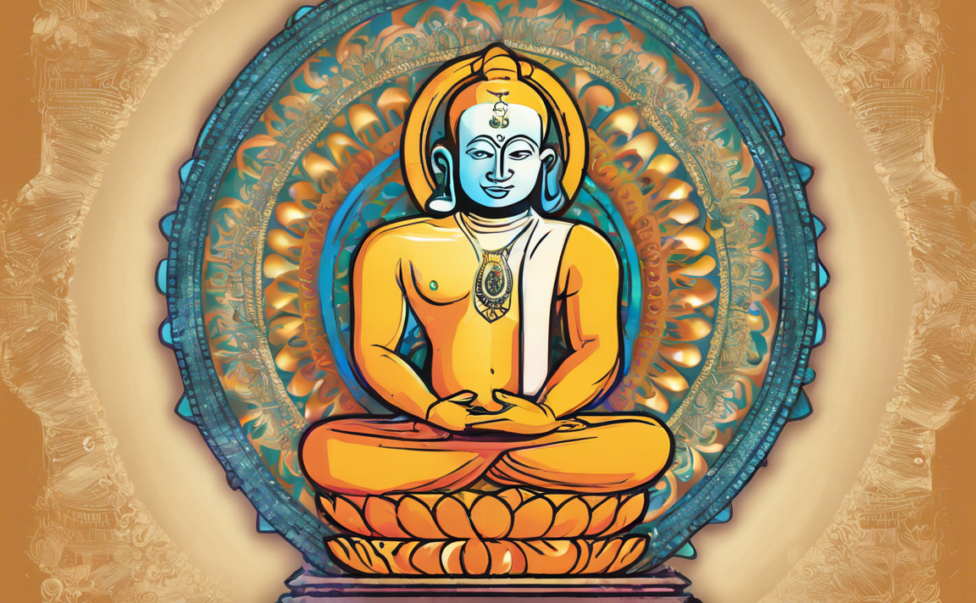Significance of Mahavir Jayanti 2024 Celebrations
Introduction
Mahavir Jayanti, also known as Mahavir Janma Kalyanak, is a significant festival celebrated by Jains across the world to commemorate the birth of Lord Mahavir, the 24th and last Tirthankara of Jainism. This day falls on the 13th day of the Chaitra month (March-April) in the Hindu calendar. Mahavir Jayanti holds immense spiritual and cultural significance for Jains, as it marks the birth anniversary of a revered spiritual leader known for his teachings of non-violence, compassion, and self-discipline.
History of Mahavir Jayanti
Lord Mahavir was born in 599 BCE in the kingdom of Vaishali in present-day Bihar, India. He renounced his royal privileges at the age of 30 and embarked on a spiritual quest that led him to attain enlightenment and become a Tirthankara. His teachings emphasized the importance of leading a simple and virtuous life, practicing non-violence towards all living beings, and striving for spiritual liberation.
Celebrations and Traditions
Mahavir Jayanti is celebrated with great enthusiasm and devotion by Jains around the world. The festivities typically include prayers, processions, charitable acts, and community gatherings. Here are some of the key ways in which Mahavir Jayanti is celebrated:
1. Rath Yatra: Many Jain temples organize a procession known as Rath Yatra, where a colorfully decorated chariot carrying an idol of Lord Mahavir is taken out on the streets. Devotees sing hymns and offer prayers during the procession.
2. Abhishek: The idol of Lord Mahavir is bathed in milk, honey, ghee, and sandalwood paste as a form of purification and devotion.
3. Prayers and Meditation: Jains visit temples to offer prayers, listen to discourses on the life and teachings of Lord Mahavir, and engage in meditation to seek spiritual enlightenment.
4. Donating to Charity: Devotees practice acts of charity by donating food, clothing, money, and other essentials to the less fortunate, following the principle of ahimsa (non-violence) and compassion.
5. Fasting: Some Jains observe a day-long fast on Mahavir Jayanti as a form of penance and spiritual discipline. The fast is broken with a meal that is simple, vegetarian, and prepared without onions and garlic.
Teachings of Lord Mahavir
The teachings of Lord Mahavir continue to inspire millions of people to lead a life of virtue and righteousness. Some of the key principles propagated by Lord Mahavir include:
-
Ahimsa (Non-Violence): The practice of non-violence towards all living beings is central to Jain philosophy. Lord Mahavir preached compassion and respect for all forms of life.
-
Satya (Truthfulness): Truthfulness in speech and actions is considered essential for leading a moral and ethical life.
-
Asteya (Non-Stealing): Jainism emphasizes the importance of refraining from stealing and dishonesty in any form.
-
Brahmacharya (Chastity): Maintaining purity in thoughts and actions is emphasized as a means of spiritual progress.
-
Aparigraha (Non-Possessiveness): Detachment from material possessions and greed is believed to lead to spiritual liberation.
FAQs (Frequently Asked Questions)
1. Why is Mahavir Jayanti celebrated?
Mahavir Jayanti is celebrated to mark the birth anniversary of Lord Mahavir, the 24th Tirthankara of Jainism, and to honor his teachings of non-violence, compassion, and self-discipline.
2. How do Jains typically celebrate Mahavir Jayanti?
Jains celebrate Mahavir Jayanti by participating in prayers, processions, charitable acts, fasting, and meditation. They also visit temples to offer their respects to Lord Mahavir.
3. Is fasting mandatory on Mahavir Jayanti?
Fasting on Mahavir Jayanti is a personal choice and not mandatory. Many Jains choose to fast as a form of spiritual discipline and to commemorate the ascetic practices of Lord Mahavir.
4. What is the significance of Rath Yatra on Mahavir Jayanti?
Rath Yatra involves taking a chariot carrying an idol of Lord Mahavir on a procession. It symbolizes the spread of his teachings and serves as a way for devotees to express their devotion and reverence.
5. How can non-Jains participate in Mahavir Jayanti celebrations?
Non-Jains can participate in Mahavir Jayanti celebrations by visiting Jain temples, learning about the life and teachings of Lord Mahavir, and supporting charitable initiatives that promote compassion and non-violence.
6. Are there any specific prayers or hymns recited on Mahavir Jayanti?
Devotees often recite the Navkar Mantra and other Jain prayers that extol the virtues of Lord Mahavir and seek his blessings for spiritual enlightenment and guidance.
7. What is the spiritual significance of Mahavir Jayanti for Jains?
Mahavir Jayanti symbolizes a time for renewal of faith, reflection on the teachings of Lord Mahavir, and a commitment to following the path of non-violence, truth, and compassion in daily life.
8. How long has Mahavir Jayanti been celebrated?
The celebration of Mahavir Jayanti dates back centuries and has been observed by Jains for generations as a way of honoring the life and teachings of Lord Mahavir.
Conclusion
Mahavir Jayanti is not just a festival for Jains, but a time to reflect on the timeless teachings of Lord Mahavir that emphasize non-violence, compassion, and spiritual growth. By participating in the celebrations and immersing oneself in the traditions associated with this auspicious day, one can gain a deeper understanding of Jain philosophy and its relevance in today’s world. May the spirit of Mahavir Jayanti inspire us all to cultivate virtues of kindness, tolerance, and selflessness in our lives.

